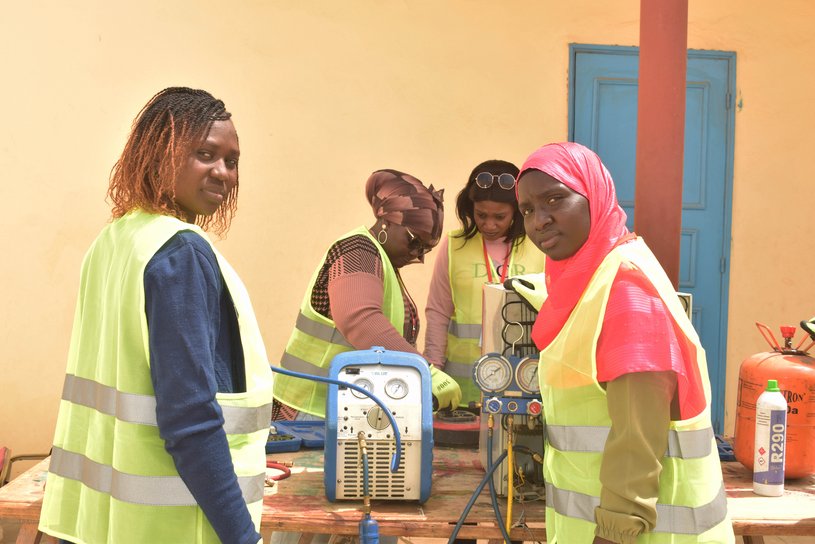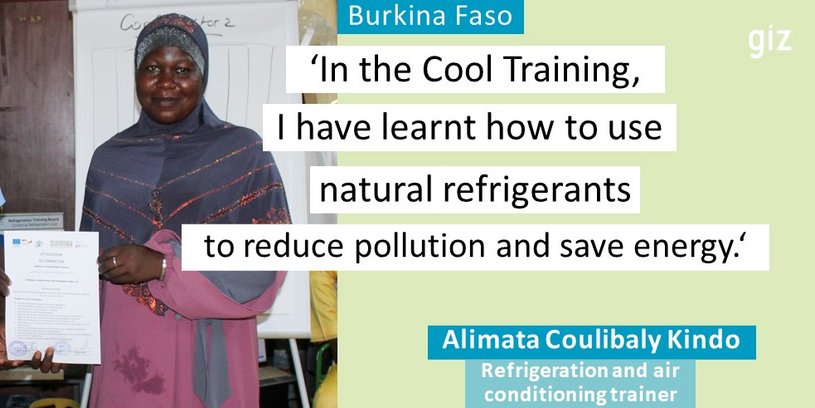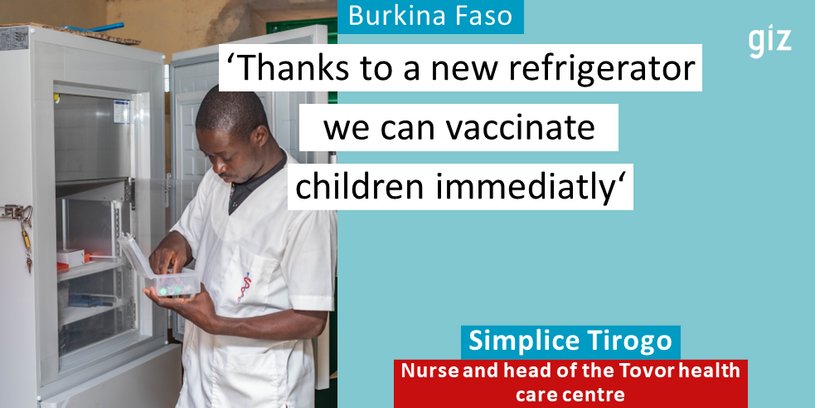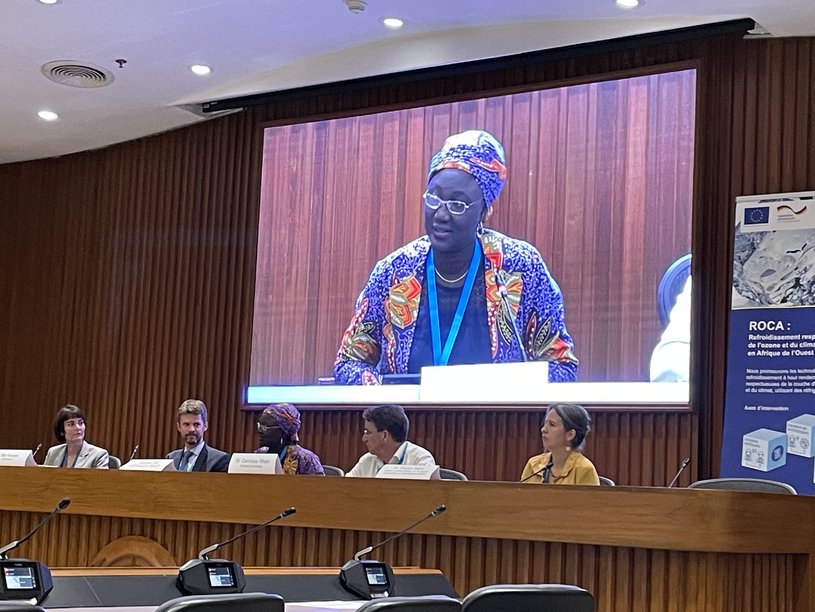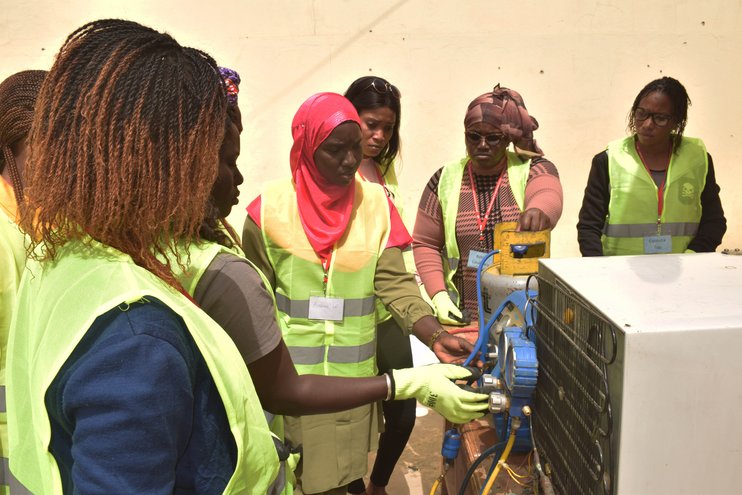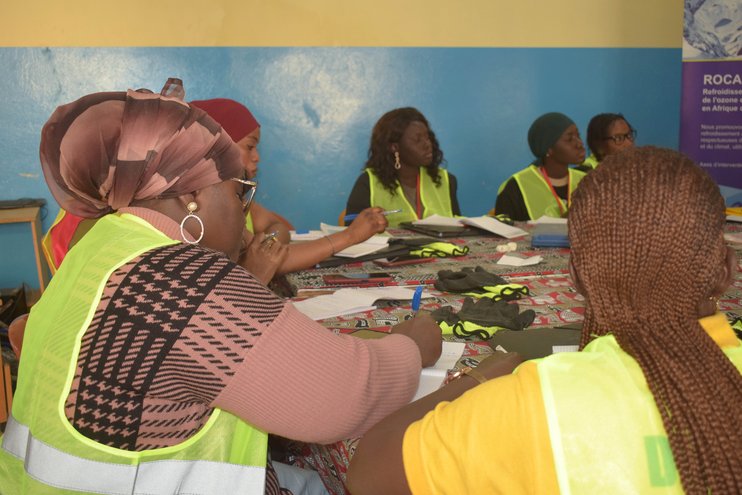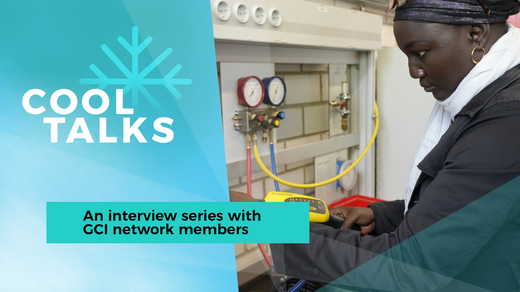“Trust female competence!”, was the topic of GIZ’s OEWG side event on Monday 3rd July 2023. The side event showed that there are many ladies who are skilled cooling technicians, but that women still face barriers in this male-dominated sector.
"By promoting equal opportunities and supporting female technicians, we can build a more inclusive and sustainable refrigeration sector where their contributions are valued and recognized”, said the main speaker, Ms. Sokhna Fall Diawara. Sokhna is a cooling technician and entrepreneur from Senegal and an advisor for the National Ozone Unit. She shared her personal experiences and those of Senegalese colleagues. Sokhna told stories about harassment and discouragement – but also stories of success and of passion for the profession.
The side event explored answers to the questions: How can more girls get encouraged to start a career in the refrigeration and air conditioning sector? How can women who work in the sector be supported?
Cornelius Rhein, European Commission, showcased an example of the project ROCA (opens in a new window) (Refroidissment respectueux de la couche d’Ozone et du Climat en Afrique de l’Ouest et Centrale – Ozone and climate friendly cooling in West and Central Africa). The project organised a training on the handling of natural refrigerants and on entrepreneurship for the Senegalese network of women in refrigeration (RENAFF). It also invites women to all other trainings, as skills can be an advantage on the job market.
photo gallery
However, the side event showed that apart from capacity building, more awareness raising is necessary already starting from a young age, because some companies and clients are reluctant to employ women technicians. There is a need for a change of mindsets also from families and husbands so that women are not alone responsible for the household and can take up a profession instead. Girls must be informed about the opportunities of working in the technical field. And they need successful role models like Sokhna Fall. Internships, information campaigns and visitation days at companies and training centers can be of help. Sokhna tells: “Initially, I did not want to pursue refrigeration and air conditioning when I passed the entrance exam for Technical Training Center. However, after a few days of classes, I started to develop a liking for the profession”. Later in their career, mentoring programmes and financing options for business creation can support the opportunities of women technicians.
The participants of the side event shared similar examples of barriers and successful support for women in refrigeration from other countries. The event created an opportunity for networking, so the joint work on this topic will continue. Nils Hansen, project manager of ROCA, concluded: “The refrigeration and air conditioning sector is growing rapidly worldwide which creates a need for more workforce – we therefore cannot afford to leave half of the population behind”.
More information and videos
Side Event Presentations (opens in a new window)
Full recording of the Side Event (opens in a new window)
Fit for the Future: Training for Lady Cooling Technicians in Senegal
Ozone and Climate Friendly Cooling in West and Central Africa (ROCA)
Video series | Women in Refrigeration - Green Cooling Initiative

